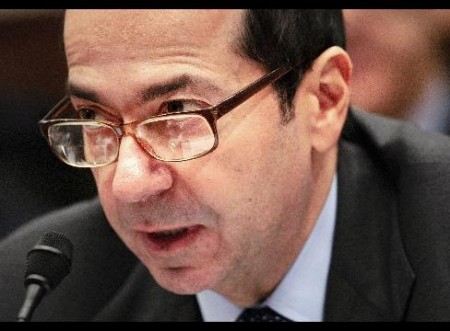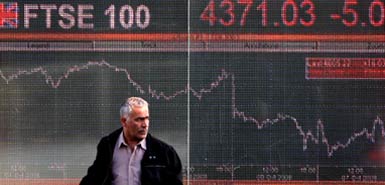“Tony Crescenzi, chief bond-market strategist at Miller Tabak & Co. in New York, says foreign investors might also get spooked if they conclude that the Fed is monetizing the government’s debt — in effect, printing money — by buying Treasuries.”
“Bernanke himself, in his 2003 speech, said monetization of the debt risked faster inflation — something bond investors, foreign or domestic, wouldn’t like.”
Because the U.S. government can’t raise taxes much higher it has to finance its debt and all those ‘not working’ bailouts and stimulus packages by issuing an enormous amount of Treasuries. This is nothing more than a promise of a tax hike in the future, because that debt has to be paid back one day plus interest.
Countries like China, Japan and Saudi Arabia have to believe in the solvency of the U.S. to buy those Treasuries, but since the U.S. Treasury will issue record amounts of treasuries in the coming years the trust that the U.S. might be able to pay its debt back wanes.
Since those countries are now also in serious trouble themselves their appetite for U.S. Treasuries will decline dramatically.
If the Fed is now buying those Treasuries by ‘printing money’ – which increases the money supply = the definition for inflation – then it will create massive inflation.
Inflation is really nothing more than a hidden tax:
“In the absence of the gold standard, there is no way to protect savings from confiscation through inflation. … This is the shabby secret of the welfare statists’ tirades against gold. Deficit spending is simply a scheme for the confiscation of wealth. Gold stands in the way of this insidious process. It stands as a protector of property rights. If one grasps this, one has no difficulty in understanding the statists’ antagonism toward the gold standard.”
– Alan Greenspan
“By a continuing process of inflation, governments can confiscate, secretly and unobserved, an important part of the wealth of their citizens. There is no subtler, no surer means of overturning the existing basis of society than to debauch the currency. The process engages all the hidden forces of economic law on the side of destruction, and does it in a manner which not one man in a million is able to diagnose.”
– John Maynard Keynes
That is why the governments of the world love Keynesianism – Obamanomics stimulus packages – so much.
The Fed calls this monetary policy ‘quantitative easing’ (= creating money out of thin air).
It should be called stealing or high treason instead.
The Fed and the government will create hyperinflation and destroy the dollar.
The Greatest Depression is coming.
– Gerald Celente: The Collapse of 2009; The Greatest Depression
– Peter Schiff: The World Won’t Buy Unlimited U.S. Debt
– Jim Rogers: Obama administration run by people who caused the latest financial problems
– Paul Craig Roberts On The U.S. Leadership: “They Are Criminals” – The Potential Here Is Far Worse Than The Great Depression
– Ron Paul on Glenn Beck: Destruction of the dollar
– Peter Schiff: We are the United States of Madoff
– Peter Schiff: We are on the verge of another major crisis
– Peter Schiff: US Dollar is on the verge of collapse; This is hyperinflation; This is Zimbabwe
Source: Bloomberg

Ben S. Bernanke, chairman of the U.S. Federal Reserve, gestures to a staff member following an open board of meeting on credit-card practices in Washington on Dec. 18, 2008. Photographer: Brendan Smialowski/Bloomberg News
Jan. 26 (Bloomberg) — Federal Reserve Chairman Ben S. Bernanke and his colleagues may try once again to cure the aftermath of a bubble in one kind of asset by overheating the market for another.
Fed policy makers meeting tomorrow and the day after are exploring the purchase of longer-dated Treasury securities in an effort to push up their price and bring down their yield. Behind the potential move: a desire to reduce long-term borrowing costs at a time when the Fed can’t lower short-term interest rates any further because they are effectively at zero.
The risk is that central bankers will end up distorting the Treasury market, triggering wild swings in prices — and long-term interest rates — as investors react to what they say and do. “It sets forth a speculative dynamic that is very unstable,” says William Poole, former president of the Federal Reserve Bank of St. Louis and now a senior fellow at the Cato Institute in Washington.
The Treasury market has “some bubble characteristics,” Bill Gross, the manager of Newport Beach, California-based Pacific Investment Management Co.’s $132 billion Total Return Fund, said in December on Bloomberg Television. He echoed that sentiment last week.
Read moreBernanke Risks ‘Very Unstable’ Market as He Weighs Buying Bonds










